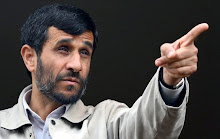Yeats has a grand style that can trip up new readers, but if you work to understand his poems, they reward your attention. Yeats wrote Lapis Lazuli in 1936, with World War II looming. In it, he addresses whether the happiness born from art is appropriate in such dark times. To put things in perspective, the cost of war in Europe had been, and would be, staggering: casualties in World War I (1914-1918) had numbered more than 9 million, and casualties in World War II (worldwide) would surpass 60 million.
In the first stanza, Yeats brings up the question of the appropriateness of happiness through the attitudes of “hysterical women” (please try to get past the sexism—though I don’t blame you if you can’t). In the second stanza, he begins his defense, which you should discover for yourself.
As with so many great poems, Lapis Lazuli not only presents an idea/argument, but tries to spark a feeling in the reader that augments the poem’s argument.
Lapis LazuliI have heard that hysterical women say
They are sick of the palette and fiddle-bow.
Of poets that are always gay,
For everybody knows or else should know
That if nothing drastic is done
Aeroplane and Zeppelin will come out.
Pitch like King Billy bomb-balls in
Until the town lie beaten flat.
All perform their tragic play,
There struts Hamlet, there is Lear,
That's Ophelia, that Cordelia;
Yet they, should the last scene be there,
The great stage curtain about to drop,
If worthy their prominent part in the play,
Do not break up their lines to weep.
They know that Hamlet and Lear are gay;
Gaiety transfiguring all that dread.
All men have aimed at, found and lost;
Black out; Heaven blazing into the head:
Tragedy wrought to its uttermost.
Though Hamlet rambles and Lear rages,
And all the drop-scenes drop at once
Upon a hundred thousand stages,
It cannot grow by an inch or an ounce.
On their own feet they came, or On shipboard,
Camel-back; horse-back, ass-back, mule-back,
Old civilisations put to the sword.
Then they and their wisdom went to rack:
No handiwork of Callimachus,
Who handled marble as if it were bronze,
Made draperies that seemed to rise
When sea-wind swept the corner, stands;
His long lamp-chimney shaped like the stem
Of a slender palm, stood but a day;
All things fall and are built again,
And those that build them again are gay.
Two Chinamen, behind them a third,
Are carved in Lapis Lazuli,
Over them flies a long-legged bird,
A symbol of longevity;
The third, doubtless a serving-man,
Carries a musical instrument.
Every discoloration of the stone,
Every accidental crack or dent,
Seems a water-course or an avalanche,
Or lofty slope where it still snows
Though doubtless plum or cherry-branch
Sweetens the little half-way house
Those Chinamen climb towards, and I
Delight to imagine them seated there;
There, on the mountain and the sky,
On all the tragic scene they stare.
One asks for mournful melodies;
Accomplished fingers begin to play.
Their eyes mid many wrinkles, their eyes,
Their ancient, glittering eyes, are gay.
 William Butler Yeats was born in Dublin, Ireland, in 1865. He is remembered as an important cultural leader, as a major playwright (he was one of the founders of the famous Abbey Theatre in Dublin), and as one of the very greatest poets—in any language—of the century. W. B. Yeats was awarded the Nobel Prize in 1923 and died in 1939 at the age of 73.
William Butler Yeats was born in Dublin, Ireland, in 1865. He is remembered as an important cultural leader, as a major playwright (he was one of the founders of the famous Abbey Theatre in Dublin), and as one of the very greatest poets—in any language—of the century. W. B. Yeats was awarded the Nobel Prize in 1923 and died in 1939 at the age of 73.
 Born Ricardo Eliecer Neftalí Reyes, the Chilean poet Pablo Neruda led a life charged with poetic and political activity. In 1923 he sold all of his possessions to finance the publication of his first book, Crepusculario ("Twilight"). He published the volume under the pseudonym "Pablo Neruda" to avoid conflict with his family, who disapproved of his occupation. The following year, he found a publisher for Veinte poemas de amor y una cancion desesperada ("Twenty Love Poems and a Song of Despair"). The book made a celebrity of Neruda, who gave up his studies at the age of twenty to devote himself to his craft. He died in 1973.
Born Ricardo Eliecer Neftalí Reyes, the Chilean poet Pablo Neruda led a life charged with poetic and political activity. In 1923 he sold all of his possessions to finance the publication of his first book, Crepusculario ("Twilight"). He published the volume under the pseudonym "Pablo Neruda" to avoid conflict with his family, who disapproved of his occupation. The following year, he found a publisher for Veinte poemas de amor y una cancion desesperada ("Twenty Love Poems and a Song of Despair"). The book made a celebrity of Neruda, who gave up his studies at the age of twenty to devote himself to his craft. He died in 1973.
 Dylan Thomas
Dylan Thomas 


